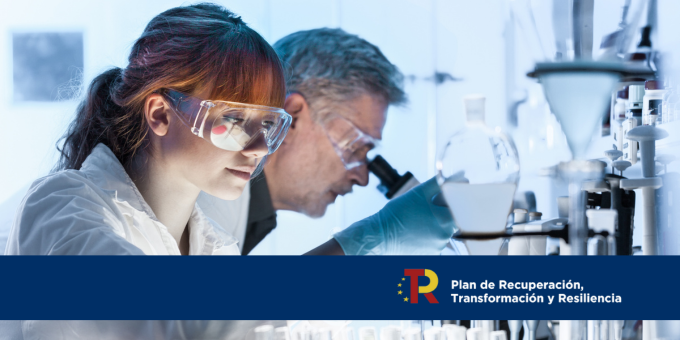This month we celebrate Mental Health Day, established by the World Health Organization. It is a history that highlights the importance of paying attention to our well-being, reducing the impact of emotions such as stress, anxiety and depression, and promoting the development of healthy experiences that allow us to live better.
With the new effects of the pandemic upon us, a stage at which signs of mental symptoms have exploded insidiously, we are more than committed to finding a way to live. It brings us greater happiness.
We’ve known some things from health science for a long time. For example:
- Mental health includes Genetic and social factors Developmental. This is not an isolated event for an individual.
- Mental health is Related to public health. To the material, to the social, to everything. We cannot divide them by trying to find independent variables, but rather they are deeply interconnected areas.
- In order to promote health and prevent disease, the basic concept is that Lifestyles. These are clear and organized ways of life, where the habits we establish in our daily lives lay the foundations for the development of certain health skills and conditions.
There is a fourth, less well-known but no less important aspect: the value of resilience not only for survival but also for survival Be better, be happier. Resilience in organisms is fundamental, trumping strength and any other ability of mammals.
In fact, in the psychological evaluation of a person, it constitutes the most important aspect that must be taken into account to predict his subsequent development in social life.
Darwin’s injustice
Poor Charles Darwin, he’s been misquoted for years. How many times have we heard: “As Darwin says, the law of the fittest.” no! This is not what Darwin said.
This column arises a bit from this quest to reconfirm Charles’s words, thanks to my conversation with psychology graduate student Juan Pablo Kovacevic, who alerted me to this. Definition of catastrophic Attributed to evolutionists.
He says: “Natural selection, which Darwin proposed in the nineteenth century, states that the fittest survive.” “But we saw that this is related to strength, while what the author referred to is another ability: Flexibility“It is necessary to survive and live fully,” the psychologist analyzes.
“What Darwin postulated is that individuals that are able to adapt to their environment survive. They pass on their genetic information and thus contribute to the survival of the species. That is, those that survive Develop adaptability “To constantly changing environments, which brings us back to the concept of flexibility.”
In the case of humans, there is a lot of that flexibility Trains in social learning Great, both in the family and in diverse social settings.
It changes, everything changes
Already in the sixth century BC, Heraclitus of Ephesus stated that “the only thing constant is change.” While Siddhartha Gautama, also known as Buddha, meditated on impermanence, explaining that everything that exists is subject to constant change, John Paul reminds us.
In contemplative practices, we practice the following: mindful (and often silent) observation of things Inconsistency Modeling all phenomena without exception.
“In short, yes Change is the norm“The ability to adapt to it is the way to survive, and it is very important to develop and train physical and mental resilience,” continues the professional.
Juan Pablo offers us some valuable strategies for increasing psychological resilience:
- Cognitive distraction: involves learning how to treat our thoughts as they actually are: mental contents made up of sounds and images, and not as objective facts in themselves.
- Taking perspective: In order to observe something more objectively, it is necessary to try to see it from different points of view. If I see only one side of a cube, I cannot be sure that the rest have the same properties; I will have to monitor them to reach a more accurate knowledge.
- The stoic stance: Based on the fact that our perceptions are subjective, multi-factor abstractions, and not necessarily absolute truths, the pause suggests a space of time between impression (thought and sensation) and reaction, leading to a more accurate evaluation and scrutiny of ourselves. (We talk about “mindful pause”).
- View events from Third party perspective: While maintaining perspective, it is helpful to imagine that what is bothering us is happening to someone else and consider what we might think in such a situation, and how we would see things. It can be supplemented with role-playing.
- Acceptance: It involves recognizing that things, whether we like it or not, are as they are. Unlike resignation, a negative attitude is not adopted, rather this understanding leads us to stop fighting against what is, and focus on how to relate to what is happening in the best possible way, most in line with the things we truly care about.
- Inconsistency: Whatever effect a thing has on us, it is subject to impermanence; Sooner or later it will happen…
From our contemplative point of view, we add three more:
- the Common humanityOr the idea that things that happen to us can happen to others, and that we all face similar situations because we are vulnerable human beings. This reduces feelings of isolation and loneliness.
- Loss of personal importance or Ego diminishmentwhich aims to show that we build castles trying to constantly raise ourselves up to be admired, when the important thing is to be ourselves and be authentic.
- Intertwining or feeling connected with everything that surrounds us, we are part of something greater that organizes us and regulates us by its laws.
It is clear that cultivating this vision will certainly make us more resilient, and therefore healthier and happier.
➪ Do you have any questions about health and wellbeing that you would like us to address in the Feedback section? Access the Clarín Help Center by clicking here, enter Letter to the editor And then to Questions for Buena Vida. Write us your inquiry and send it. ready!





